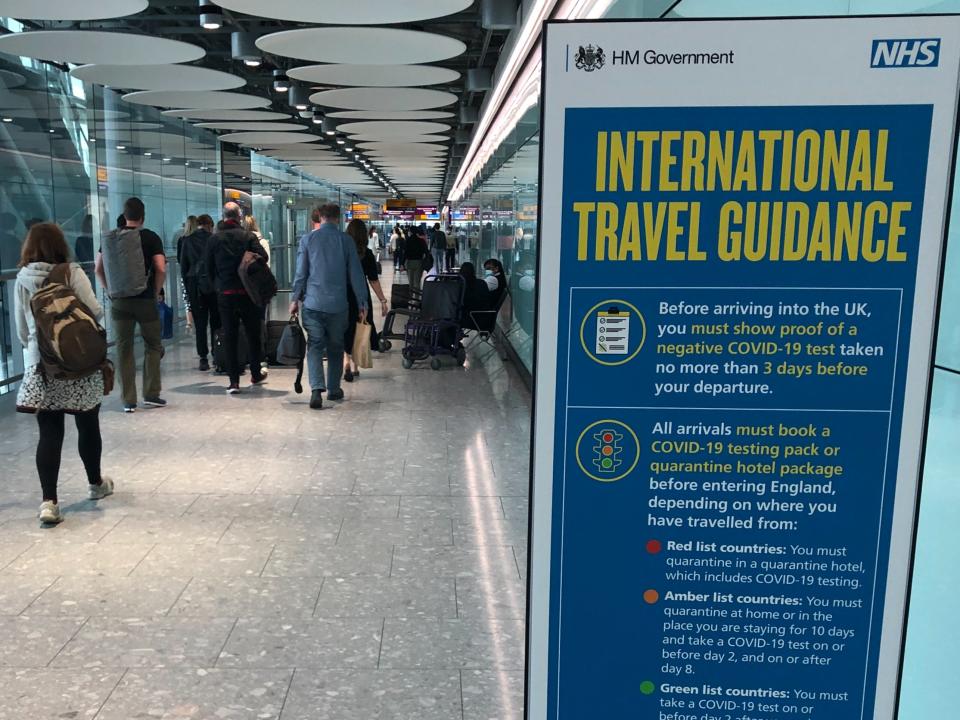The UK has put up a giant ‘Closed’ sign this summer

Simon Calder, also known as The Man Who Pays His Way, has been writing about travel for The Independent since 1994. In his weekly opinion column, he explores a key travel issue – and what it means for you.
“Restrict first. Ask questions later.” In terms of international travel, that has been the policy of many countries across the world over the past 15 months. But as Europe emerges from what we all hope is the worst of the coronavirus pandemic, nations are easing travel restrictions as the summer peak approaches.
All except one: the UK.
The travel rules were toughened up last week, followed by ministers warning that anyone who ventures overseas has only themselves to blame if they find themselves abandoning their holiday and racing to the airport.
These measures are focused on keeping Brits from straying abroad this summer. Yet they have another extremely significant effect: eliminating inbound tourism for the summer. In June, London would normally be filling up with high-spending visitors from the Gulf, with everyone from door staff at five-star hotels to shop workers benefiting.
But the government’s decision to put UAE, Qatar and Bahrain on the “red list” has shifted that lucrative market to Paris, Berlin or Amsterdam.
Which leads me to wonder: what have they been smoking at the Department for Digital, Culture, Media and Sport?
The DCMS is responsible for enticing visitors to these shores. Its new “Tourism Recovery Plan” is predicated on incoming travellers returning to pre-pandemic levels by 2023.
Let me stress that I hope that I am obliged to eat my words: that the DCMS prediction proves entirely correct. But for the life of me I cannot see how anyone expects the UK to welcome back the 41 million international visitors who came to the UK for business or pleasure in 2019, and spent over £28bn in the process, within the next two years.
No other European country has put up so big a “Closed” sign, aimed at deterring anyone with the temerity to want to visit us this summer.
Surely, you might be thinking, the UK will look more welcoming by autumn? No, exactly the opposite. From October, the problem of attracting visitors from Europe will intensify due to an especially toxic Brexit promise.
One of Vote Leave’s easy wins was to pledge to eliminate the option for EU citizens to travel to the UK using their national identity card.
Agreed, 15 years ago there were serious concerns about the insecurity of some ID cards and consequent forgeries. But Europe-wide rules now make them as secure as passports. Yet despite the destruction wrought on tourism by the coronavirus pandemic, the Home Office is pressing ahead with this change.
What’s the problem with insisting on EU visitors having passports, exactly? Well, at least 100 million citizens of the European Union have never owned one because there has simply been no need. These lucky cardholders can visit three dozen countries using their ID card. When the UK starts demanding a passport, these people will simply go elsewhere.
At a time when every European nation is desperately seeking to lure foreign visitors, a passport-only policy will sharply reduce the pool of EU tourists who might be attracted to the UK.
Restrict first, ask questions later indeed.
Read More
What is the transatlantic travel taskforce, and what might it achieve?

 Yahoo Finance
Yahoo Finance 